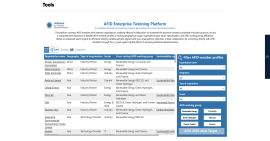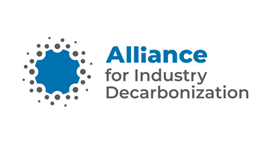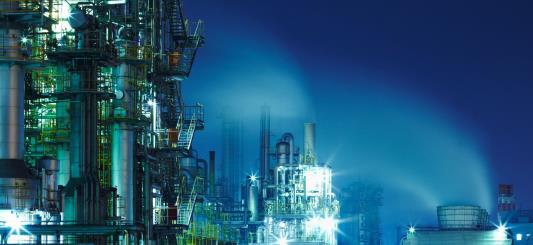
About
With more than 30% of global greenhouse gas emissions and nearly 40% of global energy consumption, the industrial sector is the second largest emitter after power generation. At the same time, the demand for energy and industrial products is forecasted to increase tremendously. Without increased emission reduction efforts within the industrial sector, the goal of limiting global temperature rise to 1.5 Celsius stays unreachable.
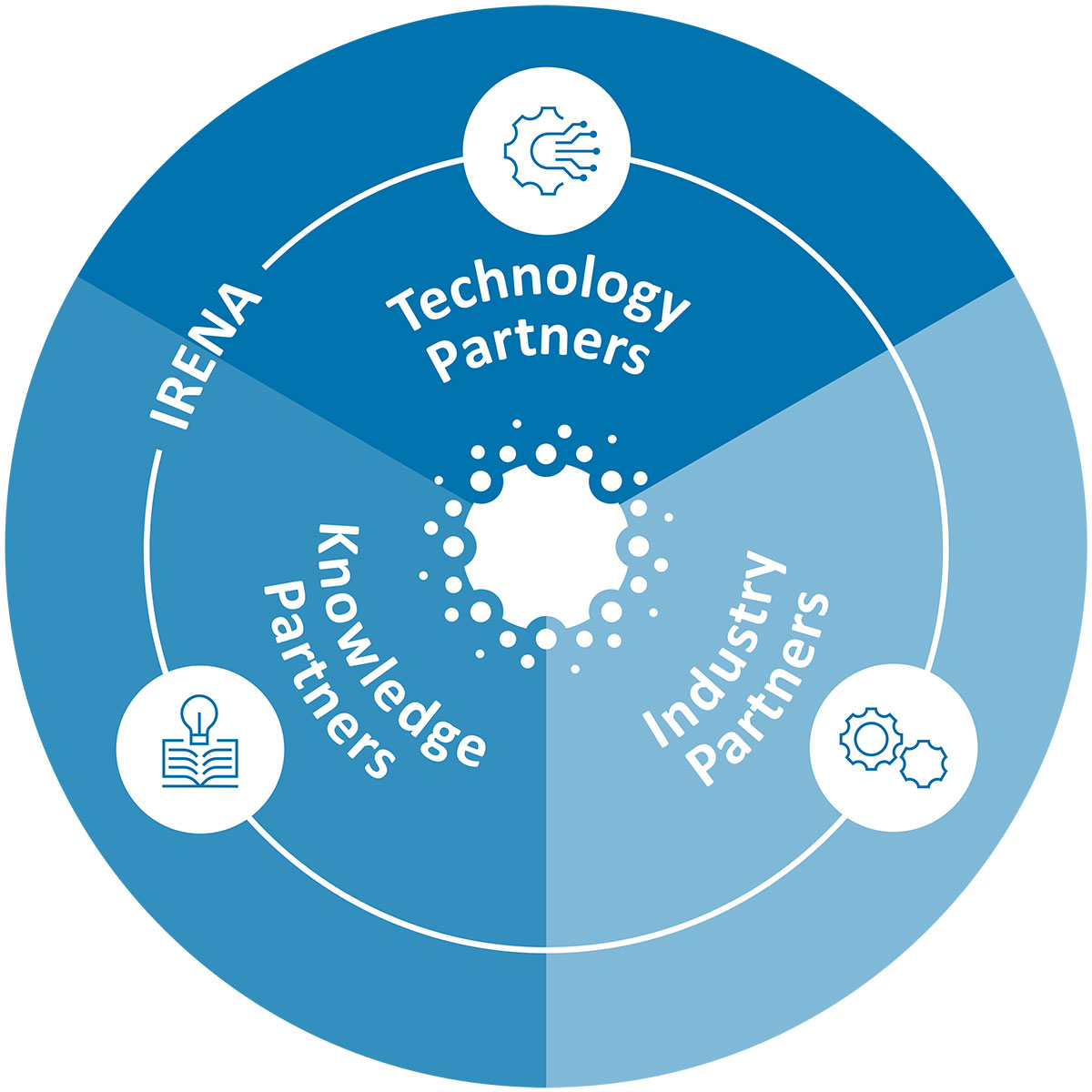
The Alliance for Industry Decarbonization aims to decarbonize industrial value chains and accelerate net-zero ambitions in accordance with the Paris Agreement. The Alliance’s founders and partners, consisting of private and public organizations and stakeholders operating in energy-intensive sectors, commit to collaborate toward the common vision of a green future. The Alliance members believe in the power of partnerships based on honest dialogue and concrete actions.
The International Renewable Energy Agency (IRENA) coordinates and facilitates the activities of the Alliance based on its vast experience in hosting multi-stakeholder platforms. Siemens Energy Co-chairs the Alliance leadership alongside EMSTEEL and Knowledge Partner Roland Berger supporting the buildup and implementation.
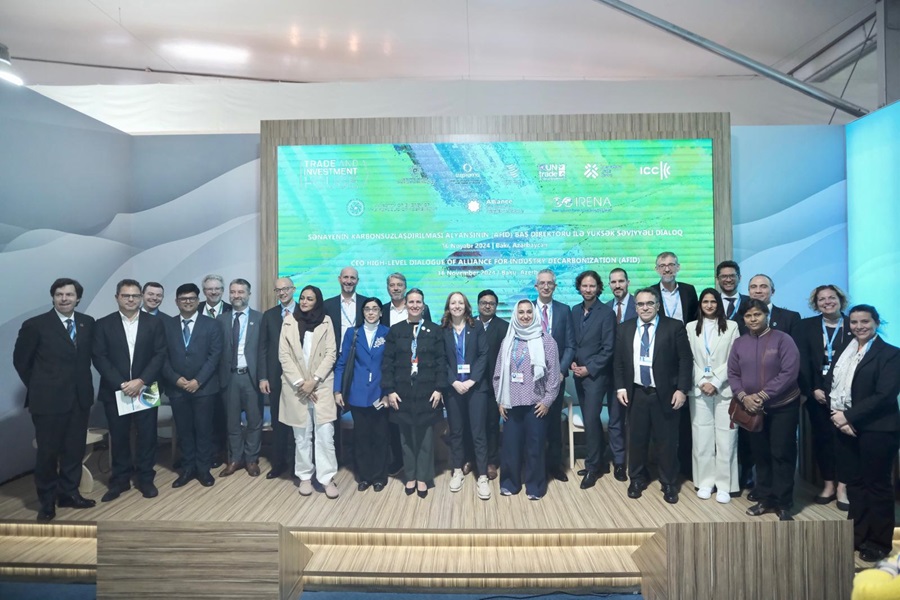

Alliance Objectives
The objective of the Alliance for Industry Decarbonization is to facilitate dialogue on industry level and increase cooperation to help companies to develop solid decarbonization strategies and implementation plans, aligned with their countries’ net-zero and decarbonization commitments. The Alliance is to serve as a global platform for enhancing dialogue through exchange of insights, experiences and best practices.Focus areas
Through common goals, willingness to change, and strong collaboration, industrial emissions will stop rising. Ultimately, only collective efforts of the industrial sector will accelerate the achievement of a net-zero future.
The Alliance operates under the following focus areas:

Members
Members
Ecosystem knowledge partners
The growing number of members and eco-system knowledge partners highlights that an international, multi-stakeholder platform enabling exchange and collaboration to tackle the decarbonization of the industrial sector was long overdue.
How to join
To apply to become a member of the Alliance for Industry Decarbonization, please fill out the membership form below and email it to afid@irena.org.
There is no membership fee.
“Climate action needs industry leaders.”
“We have less than a decade left to secure a fighting chance for a 1.5°C world. Climate action needs industry leaders. This Alliance stands for the growing commitment of global industry to act on decarbonization.”
“There is no alternative to the energy transition.”
“Industry has changed before and can do it again. The energy transition is essential, and we have the technology to decarbonize. Now, we need to act together for ambitious implementation.”
“The commitments announced by the Alliance today reflect a collective and unwavering dedication to accelerating the transition to a sustainable, low-carbon future.”
“As we stand at the crossroads of climate action, the commitments announced by the Alliance today reflect a collective and unwavering dedication to accelerating the transition to a sustainable, low-carbon future. Our enhanced targets to reduce greenhouse gas emissions, expand renewable energy capacity, and lead in green hydrogen and bioenergy solutions, are vital steps towards achieving a carbon-neutral world by 2050.”
Events
- Technology & Innovation: Advancements in hydrogen and carbon capture show promise but require global standards and regulatory clarity to scale effectively.
- Policy & Certification: Clear policies and credible certification systems are essential to create market certainty and enable green product valuation.
- Financing & Implementation: Innovative financing models and public-private partnerships are needed to bridge the investment gap for large-scale projects.
- Global Coordination: International alignment on standards and infrastructure is crucial for efficient decarbonization across supply chains.
- Operational Barriers: Practical challenges like land access and data availability require better stakeholder coordination to accelerate project development.
- Presentation of AFID’s new report, “The Building Blocks of Hydrogen Hubs: A Case Study from the Mediterranean Region,” which highlighted the urgent need for a strong policy push to establish a green hydrogen economy—particularly by addressing the cost gap between green hydrogen and fossil alternatives, and by advancing enabling infrastructure and financing mechanisms.
- Scaling hydrogen hubs as integrated clusters linking production, storage, distribution, and consumption to cut costs and boost efficiency.
- Mobilizing investment and market confidence through clear demand signals, incentives, and cross-sector collaboration around shared decarbonization goals.
- - How robust verification, harmonized standards, and innovative financial mechanisms can build credibility and scale investments.
- - Mobilizing green finance for industrial decarbonization requires confidence in data, standards, and measurable outcomes.
- - Developing innovative financial solutions tailored to the needs of emerging markets, small and medium enterprises, and complex industrial supply chains.
- - What principles could be applied by financiers to define a “green project.
- BECCUS: Snam
AFID member and lead of the Green H2 Working Group, was selected for its eSMR technology, which uses electricity-powered Steam Methane Reforming plants from biogas to produce hydrogen, while also capturing biogenic CO2.
- Green H2: Latent Drive
UK-based technology developer and new-joiner of AFID, was selected for Seastack, a direct seawater-to-hydrogen electrolyzer that does not require desalination or purification and optimized for offshore applications.
- Circularity: 9-tech
Italy-based startup, selected for its innovative process for solar PV recycling that produces zero waste, is highly efficient, autonomous in energy and fully automated, that allows for high recovery rate of materials from waste PV panels.
- Dimitrios Dimitriou, Vice President, EMSTEEL and AFID Co-chair: “While the industrial sector has long been a cornerstone of global development, it is responsible for more than 30% of global greenhouse gas emissions and for consuming nearly 40% of global energy, placing as the second-largest emitter behind power generation. As we set our sights on the road towards net zero, innovation and collaboration remain our best weapons to bridge the gap between today’s progress and the progress needed to make lasting change.”
- David Frans, Senior Partner, Roland Berger: “The biggest problem we are facing is the lack of innovation and price signals. If we added 100 dollars per ton of CO2 emitted, it would mean adding 2% of everything. Most politicians and people know what needs to be done, but it comes at a cost.”
- Bruce Douglas, CEO, Global Renewables Alliance: “Green electrons need de-risking. Private capital will only flow towards profits and will have to cover 80% of the investment needed. The rest is from the public sector. The industry also needs to be provided a signal to invest confidently, for instance, thanks to long-term PPAs.”
- Shilpa Suyal, Strategic account manager for the region, Rockwell Automation: “Achieving decarbonization goals needs strong collaboration between the industry and various stakeholders such as Governments. Governments need to establish policies and stringent regulations to create a favorable environment that covers the overall system. It cannot be a silos operation.”
- Key theme 1: Challenges of decarbonizing the industrial sector
- Key theme 2: Possible solutions to address the barriers
- Key theme 3: Need for collaboration

AFID at ADIPEC 2025
Abu Dhabi, United Arab Emirates, 6th November 2025 – The Alliance for Industry Decarbonization (AFID), on behalf of the BECCUS Working Group, hosted a Roundtable Discussion: “Driving Collaborative Actions for Decarbonisation in Hard-to-Abate Industries” during ADIPEC 2025, bringing together industry leaders, knowledge partners, and policymakers to explore challenges and opportunities in decarbonising sectors such as cement, steel, and energy-intensive manufacturing.
The discussions highlighted a clear consensus: the technological pathways and tools for decarbonizing hard-to-abate industries are available and advancing, but a significant implementation gap persists due to financial, regulatory, and systemic barriers.
Key discussion points included:
Building on the valuable insights from the discussion, AFID reaffirmed its commitment to promoting collaboration between, industry, government, finance and technology stakeholders to decarbonize hard-to-abate industries and build sustainable, inclusive industrial systems for the future.
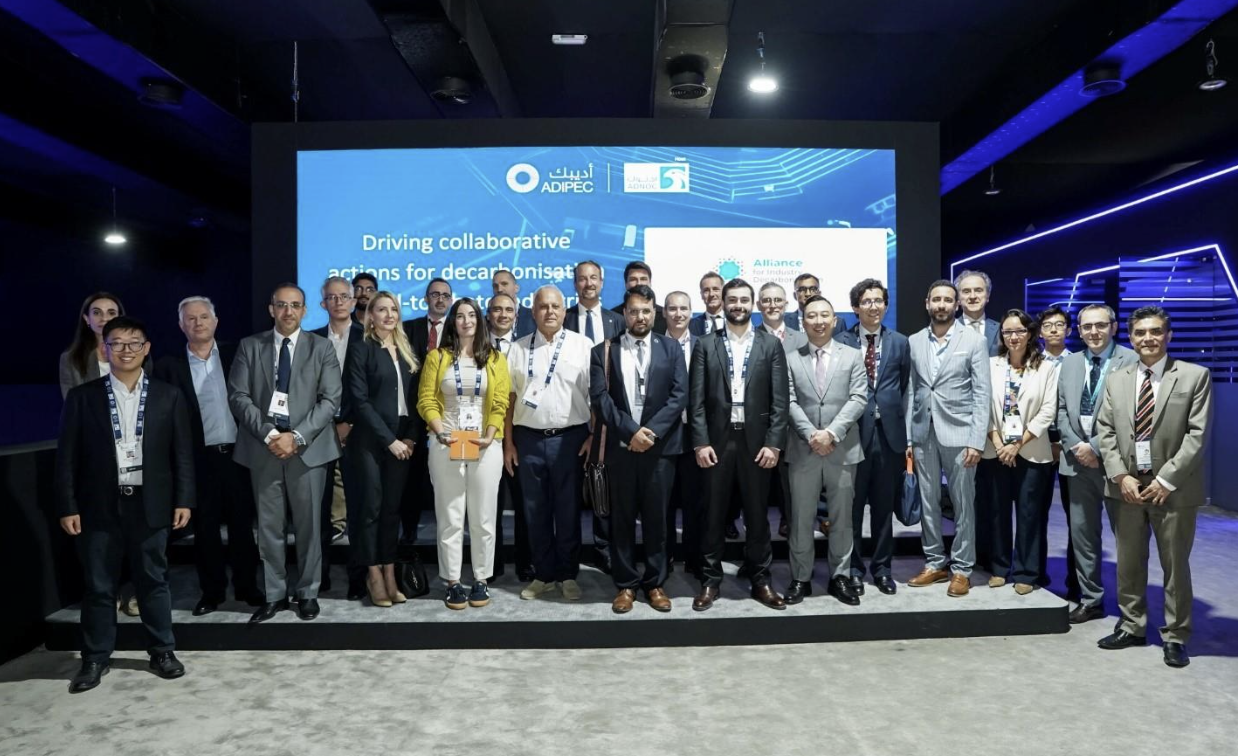

AFID at COP30
Belém, Brazil, 15 November 2025 – The Alliance for Industry Decarbonization (AFID) will play an active role at COP30, convening and co-organizing a series of events across the Blue Zone. These sessions will showcase real progress and collaborative pathways to accelerate industrial decarbonization globally.
On 15 November 2025 (11:00–12:00, Blue Zone), AFID, in collaboration with LeadIT and ITA, will co-organize the session “Clean Industry: Real Projects, Real Progress, Real Bright Spots” at the Axis 1 Thematic Room. The session will highlight impactful case studies, successful industrial decarbonization initiatives, and technologies driving emission reductions and sustainable transformation.
On the same day, 15 November 2025 (12:00–13:00, Blue Zone), AFID and the Global Alliance for Sustainable Energy (GAforSE) will co-host the event “Accelerating Zero and Low Emission Technologies in Hard-to-Abate Sectors” at the Global Renewables Hub. The session will gather leaders from industry, government, and technology providers to explore innovative solutions and cross-sectoral actions supporting the large-scale deployment of zero- and low-emission technologies.
Later that day, 15 November 2025 (12:30–13:30, Blue Zone), AFID and the Utilities for Net Zero Alliance (UNEZA) will co-organize the “Plan to Accelerate Electrification Solutions Workshop” at the Axis 1 Thematic Room. The session will focus on strategies to expand clean electrification and integrate renewable energy across industrial value chains.
Through these engagements, AFID reaffirms its commitment to driving collaboration, sharing actionable solutions, and supporting global efforts toward net-zero industries. These sessions will provide an important platform for stakeholders to exchange insights, align priorities, and strengthen partnerships in the lead-up to 2030 targets.

AFID at New York Climate Week 2025
New York City, 23–24 September 2025 – The Alliance for Industry Decarbonization (AFID) convened two high-level sessions during New York Climate Week 2025, bringing together industry leaders, financiers, policymakers, and technology experts to advance dialogue on financing industrial decarbonization and accelerating the deployment of green hydrogen as key enablers of a net zero industrial transition.
Wednesday, 24 September 2025
Executive Roundtable: Green Hydrogen as a Pathway to Decarbonize Hard-to-Abate Industries
Organized by the Alliance for Industry Decarbonization (AFID), hosted at Guidehouse Office, Rockefeller Plaza, New York City
As part of New York Climate Week 2025, AFID convened an executive roundtable discussion on “Green Hydrogen as a Pathway to Decarbonize Hard-to-Abate Industries.” The session gathered representatives from international organizations, industrial leaders, technology providers, and financial institutions to discuss the barriers and opportunities for accelerating the deployment of green hydrogen in industrial applications.
The discussion emphasized that green hydrogen is a crucial complementary solution to electrification — particularly for high-temperature processes and as a feedstock for chemical production. Participants examined strategies to close the gap between green hydrogen production and fossil alternatives, highlighting the need for policy and financial mechanisms that can drive early adoption and de-risk investments.
Key discussion points included:
AFID reaffirmed the importance of global cooperation in advancing the hydrogen economy, calling for stronger investment, innovation, and knowledge-sharing to accelerate the decarbonization of industrial value chains.
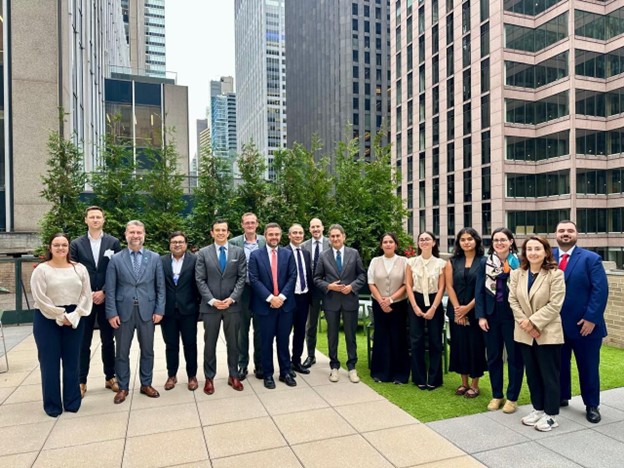
Tuesday, 23 September 2025
Panel Discussion: Financing Industrial Decarbonization – Building Trust Across the Value Chain
Organized by TÜV SÜD and the Alliance for Industry Decarbonization (AFID), within the North America Climate Summit at New York Climate Week
As part of New York Climate Week 2025, the Alliance for Industry Decarbonization (AFID) and its Finance Working Group, led by TÜV SÜD, convened a high-level discussion on “Financing Industrial Decarbonization: Building Trust Across the Value Chain.” The event brought together leaders from the finance, industry, and policy communities to address the critical need for confidence, data integrity, and harmonized standards in scaling investment for industrial decarbonization.
Discussions highlighted the global “trust gap” that continues to hinder the flow of capital especially to emerging markets and developing economies and explored how robust verification systems and innovative financial mechanisms can enhance credibility and attract private investment.
Key discussion points included:
The session also provided a preview of insights from the upcoming AFID Finance Working Group report, which outlines global frameworks and recommendations for scaling industrial decarbonization and help bridge the trust gap and unlock sustainable financing
AFID reaffirmed its commitment to promoting collaboration between finance, industry, and technology stakeholders to accelerate the shift toward sustainable, inclusive, and low-carbon industrial systems.
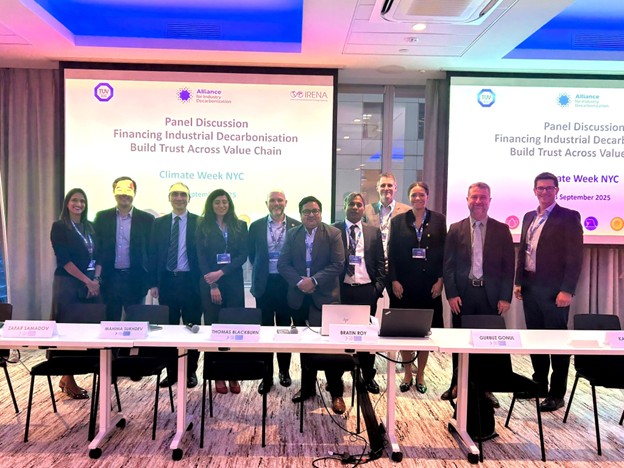

AFID Innovation Technology Showcase
Bonn, Germany, 11 June 2025 – Launched at COP29 and held during IRENA’s Innovation Week 2025, the Alliance for Industry Decarbonization hosted the first edition of the Technology Innovation Showcase, co-organized with AFID Member Net Zero Technology Centre.
The session spotlighted breakthrough technologies that could tackle the challenge of abating industrial CO2 emissions, which causes one third of global energy and process-related emissions. The Technology Innovation Showcase involved a large pool of candidates including developers from AFID Members, NZTC’s previous projects and its TechX Accelerator.
Following a rigorous shortlisting of all technology candidates, 3 finalists were selected in the categories of Green Hydrogen, Bioenergy with CCUS and Circularity:
After the pitch given by each technology developer, the audience was involved to select one favourite technology among the finalists, which has been awarded to 9-tech.
The Secretariat wishes to thank and congratulate the technology developers who applied their technology, the finalists and all participants who made possible this remarkable demonstration of innovation, commitment and drive to contribute to Industry Decarbonization. AFID is committed to continue fostering the platform for innovation and collaboration.


Solutions to Decarbonize the Industrial sector
IRENA Pavillion, ADNEC, Abu Dhabi, United Arab Emirates, 14 January 2025 – During the World Future Energy Summit 2025, in the context of the Abu Dhabi Sustainability Week, AFID Members got together at the IRENA Pavillion discussing the main challenges hindering industry decarbonization. The event was held right after the IRENA 15th Assembly.
Key Highlights:
Key themes, including:
Conclusion:
The AFID members recognized the paramount role of solidarity and partnerships in facing this global challenge and the importance of achieving the objectives of the Paris Agreement of limiting global warming to below 1.5°C, compared to pre-industrial levels, and achieving climate neutrality by mid-century.
Existing policies and instruments promoted by policy makers, such as carbon markets, are yet to be standardized and implemented worldwide. However, it is also important to consider the differences in historical emissions between countries and the financial constraints some nations face, which may make high carbon prices challenging to implement. Effective decarbonization while maintaining affordable costs is, therefore, another goal to be addressed by innovative technologies and solutions.
As AFID sets its sights towards net zero, innovation and collaboration remain the best weapons for bridging the gap between today’s progress and the progress that is needed to make lasting change.
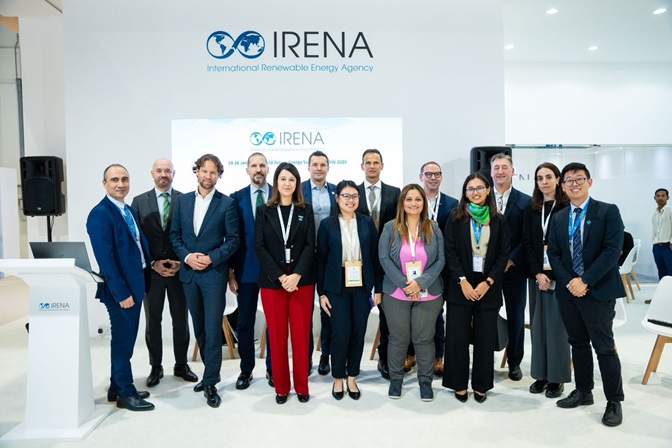

Enhancing Commitment to Deep, Rapid and Sustained Emission Reductions – Alliance for Industry Decarbonization CEO High Level Dialog
AFID major announcements during COP29
Baku, Azerbaijan, 16 November 2024 – Today, during a pivotal CEO high level dialog on coordinated actions towards raising aspiration for decarbonization, aligned with global and national decarbonization at COP29, the Alliance for Industry Decarbonization (AFID), Co-chaired by Siemens Energy and EMSTEEL, has announced four strategic commitments to address the challenges related to decarbonization of industrial sectors.
CEOs have discussed progress under the Decarbonization Commitment and adopted enhanced joint Targets to 2030. Members of AFID have individual plans that combined aim to reduce 54% of direct and indirect greenhouse gas (GHG) emissions and grow the installed renewable capacity 183 gigawatts (GW) from 2023 to 534 GW in 2030. Moreover, Alliance member have committed to almost double installed green hydrogen, significantly increase bioenergy with CCUS solutions, increase workforce re-skilling from currently 20% to 99% and significantly boost investments in energy transition projects to more than USD 124 billion by the end of this decade.
AFID in collaboration with Net Zero Technology Centre has launched an Innovation Competition to identify and accelerate the deployment of decarbonization technologies for AFID beneficiary companies with a focus on high TRL innovations. Competition is open to energy transition technology innovators around the world. The top finalists will pitch their innovations to judges in 2025, with winners offered to pilot technology with AFID beneficiary companies.
AFID has collectively endorsed joint statement of global decarbonization initiatives namely Scaling International Assistance for Industry: COP29 Global Commitment and ITA Open Letter on Demand Stimulating Policies.
IRENA Director-General Francesco La Camera said, “The Alliance continues to show what collective ambition, and strategic action can achieve in advancing decarbonization. The commitments made by industry leaders today at COP29 set a clear path towards reducing emissions by 54% and accelerating renewable energy capacity. This milestone strengthens the Alliance’s role as a catalyst for sustainable industry transformation, pushing forward innovation, more ambitious targets, and investments in energy transition projects. By fostering cross-sector and global collaboration, we are advancing not only our 2030 targets but also the critical role that industry must play in achieving a 1.5°C scenario.”
Eng. Saeed Ghumran Al Remeithi, Group Chief Executive Officer of EMSTEEL and Co-chair of AFID, commented: “As we stand at the crossroads of climate action, the commitments announced by the alliance today reflect a collective and unwavering dedication to accelerating the transition to a sustainable, low-carbon future. Our enhanced targets to reduce greenhouse gas emissions, expand renewable energy capacity, and lead in green hydrogen and bioenergy solutions are vital steps toward achieving a carbon-neutral world by 2050.
For EMSTEEL, as the UAE’s largest steel and building materials manufacturer, and as Co-chair of this ground-breaking alliance, these commitments not only represent a significant leap in our shared responsibility but also demonstrate the power of industry collaboration in driving systemic change. By focusing on scaling innovative technologies, re-skilling our workforce, and making bold investments in energy transition, we are empowering industries worldwide to meet the challenges of decarbonization.
“AFID’s collective ambition will play a crucial role in shaping the trajectory of global emissions reductions, and together, we are proving that sustainability and economic growth can and must go hand in hand.”
Mr. Christian Bruch, Siemens Energy Chief Executive Officer and Co-chair of AFID said, “The announcement by the members of the Alliance at COP29 are a clear commitment for a practical approach to achieving a more sustainable future. I hope this pledge will serve as a beacon to encourage further collaboration amongst industry leaders in accelerating the deployment of cutting-edge decarbonization technologies and drive the energy transition forward. ”
Mr. Luca Corradi, Net Zero Technology Centre Chief Technology Officer Luca said, “Net Zero Technology Centre is thrilled to be involved in this significant Alliance, and we are eager to contribute to the delivery of the innovation competition. Our mission has always been to accelerate the development and deployment of net zero technology, and we are excited to collaborate with AFID members across the pillars of the alliance. Together, we will work to identify and scale up innovative technologies for adopters within the AFID. ”
On the run up to COP29, AFID has published new reports:
Solutions to decarbonize heat in the steel industry highlights key solutions for decarbonizing steel manufacturing, including low-carbon fuels, renewable electrification, and waste heat recovery. It calls for collaboration among governments, industry, and researchers, along with investment in research, pilot projects, and workforce training.
Green hydrogen: A cross-industry dialogue for sustainability underscores green hydrogen’s essential role in decarbonizing transport, power, and industry, calling for global cooperation on standards and regulations to accelerate adoption.
Accelerating decarbonisation using bioenergy with carbon capture, utilisation and storage. This report highlights the critical role of carbon capture and storage (CCS) and bioenergy with CCS in achieving global decarbonization goals, covering their status, costs, prospects, and policy landscape, with global case studies included.
Advancing bioenergy with carbon capture, utilization and storage. Policies, regulations, MRV and certification examines BECCUS integration for the 1.5°C climate target, addressing key policies, regulations, and standards for sustainable biomass sourcing and CO2 storage. It emphasizes MRV standards to strengthen carbon market transparency and offers guidance for policymakers and industry on advancing the low-carbon transition.
The Alliance is urging new members to sign up and join their common vision to speed-up the energy transition. Membership is open to public and private firms and stakeholders operating in energy-intensive sectors ready to decarbonize their activities now.
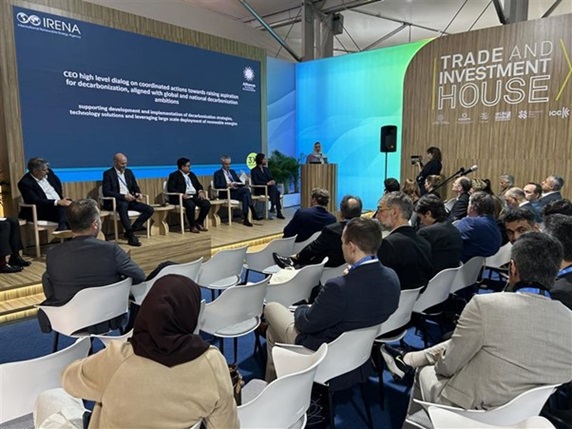

AFID at COP29
Baku, Azerbaijan, 16 November 2024 – On November 16, 2024, the Alliance for Industry Decarbonization (AFID) hosted a CEO High-Level Dialogue “Enhancing Commitment to Deep, Rapid and Sustained Emission Reductions” at COP29. This pivotal event brought together executive leaders who shared key messages and jointly addressed the challenges related to decarbonization across industrial sectors. AFID members and partners have positively evaluated progress under key actions for 2024, demonstrating concrete results and an unwavering continued commitment to driving the decarbonization of industry to new heights.
The discussions centered around the urgent need for enhancing commitment to deep, rapid, and sustained emission reductions, particularly across different industries. The event featured the launch of the AFID Innovation Competition, in collaboration with the Net Zero Technology Centre, aiming to identify and accelerate the deployment of decarbonization technologies. This competition has invited energy transition technology innovators from around the world to submit solutions, with top finalists getting the opportunity to pitch their innovations in 2025. The winners will have the opportunity to pilot their technology with interested AFID beneficiary companies.
During the event, AFID adopted its enhanced Decarbonization Commitment with joint targets for 2030. The members of AFID have individual plans that combined altogether aim to reduce 54% of direct and indirect greenhouse gas emissions, growing renewable generation capacity from 183 gigawatts (GW) in 2023 to 534 GW by 2030.significantly boost bioenergy with CCUS solutions, increase workforce re-skilling from 20% to 99%, and invest more than USD 124 billion in energy transition projects by the end of the decade.
Key messages from the published reports have been presented on decarbonizing heat in the steel industry, advancing green hydrogen solutions, and accelerating bioenergy with carbon capture, utilization, and storage.
AFID has collectively endorsed joint statements of the global decarbonization initiatives, including Scaling International Assistance for Industry: the COP29 Global Commitment and the ITA Open Letter on Demand Stimulating Policies.
The high-level dialogue explored coordinated actions to raise aspirations for decarbonization, aligned with global and national decarbonization ambitions. This discussion emphasized the importance of supporting the development and implementation of decarbonization strategies, leveraging technology solutions, and deploying renewable energy on a large scale.
In conclusion the session emphasized the collective determination to achieve a sustainable, low-carbon future.
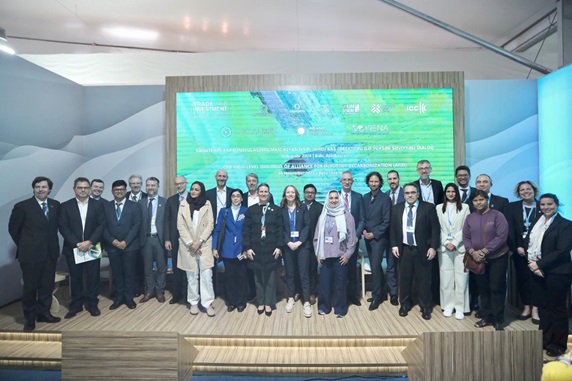
AFID Publications

This report from the AFID Green Hydrogen Working Group proposes a value chain framework to analyse the “building blocks” of hydrogen hubs. It provides a detailed case study from the Mediterranean region – an exemplary cornerstone for the development of a sustainable and efficient hydrogen market.

AFID continues to drive industrial decarbonisation through the power of partnerships based on honest dialogue and concrete action. In 2024, the Alliance grew to 83 members and partners, reflecting the increasing global commitment to advancing the transition towards net-zero emissions in industry. This report highlights key messages and achievements from 2024, including progress achieved under the Decarbonization Commitment; as well as toward reducing Scope 1 and 2 emissions by 54%, and deploying up to 534 GW of renewable energy capacity by 2030.

Bioenergy with carbon capture, utilisation and storage (BECCUS) is crucial for achieving global climate goals, supporting a comprehensive pathway to net-zero emissions. This report explores the integration of BECCUS into energy systems, covering essential policies, regulations and certification standards needed to scale up BECCUS, ensuring sustainable biomass sourcing and reliable long-term CO2 storage. It also underscores the importance of robust monitoring, reporting and verification (MRV) standards for carbon credits, and provides actionable insights for policymakers and industry leaders.

The report focuses on the role that carbon capture and storage and bioenergy with carbon capture and storage will need to play in meeting the world’s decarbonisation commitments. It covers the global status, costs, and prospects of carbon capture and storage, with and without bioenergy as well as a brief overview of policy and regulation. The report includes global case studies of carbon capture and storage.

This report explores the crucial role of green hydrogen in the global energy transition. It emphasises the importance of green hydrogen in decarbonising transport, power and industry, advocating a global shift towards sustainable energy practices. Highlighting the need for international cooperation, the report calls for standardised definitions, safety standards and regulatory frameworks to accelerate the development and adoption of green hydrogen, and sets a goal to establish green hydrogen as an accessible and cost-effective technology option by 2030.

This comprehensive report from the Alliance for Industry Decarbonization (AFID) details a range of solutions to decarbonise steel manufacturing, such as shifting to low-carbon fuels like hydrogen, electrifying processes with renewable energy, and utilising waste heat recovery systems to improve efficiency and reduce emissions. The report emphasises the importance of collaboration among governments, industry stakeholders, and research institutions to create supportive policies and incentives. It calls for significant investment in research, the implementation of pilot projects, and workforce training to advance decarbonisation technologies and ensure their successful implementation.
